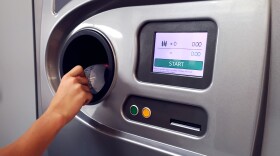Some Democratic lawmakers want to put an expansion of Michigan’s 10 cent bottle deposit law on the Legislature’s to-do list when it returns from its summer recess.
The plan would add water, juice, and other non-carbonated beverages (but not milk) to beer, soda, and other drink containers already covered under the returnable law. The law was adopted in the 1970s via a petition campaign as an anti-littering measure. But Michigan Senator Senator Sean McCann (D-Kalamazoo) says it’s become much more than that.
“The reality is it’s been the most successful recycling initiative in the state of Michigan by far,” he told Michigan Public Radio. Expanding the law, he said, “will dramatically recover more waste into the recycling stream than we do currently in the state of Michigan.”
McCann chairs the Senate Energy and Environment Committee.
Grocers and party stores have long complained the law imposes an unfair burden on their businesses. The law requires them to take returnables regardless of where they were purchased, and they have to set aside space in their businesses to store empty cans and bottles. That means they have to take extra measures to keep their businesses clean and sanitary, said Andrea Bitely of the Michigan Retailers Association.
“Because if you think about it, the sticky materials and substances that are left behind in those cans and bottles attract insects. They attract rodents. They attract all of the gross things that you and I definitely do not want crawling around in our groceries.”
The law does set aside some of the money from unclaimed bottle deposits to reimburse retailers. The rest goes to the state for environmental cleanups. Bitely said retailers would prefer the state put more resources into promoting voluntary recycling than expand the deposit law.
It would take wide bipartisan support to enact any amendments to the law. Because its adoption in 1976 was through a petition initiative, it would take three-quarter supermajority votes in the House and the Senate to change the law.






